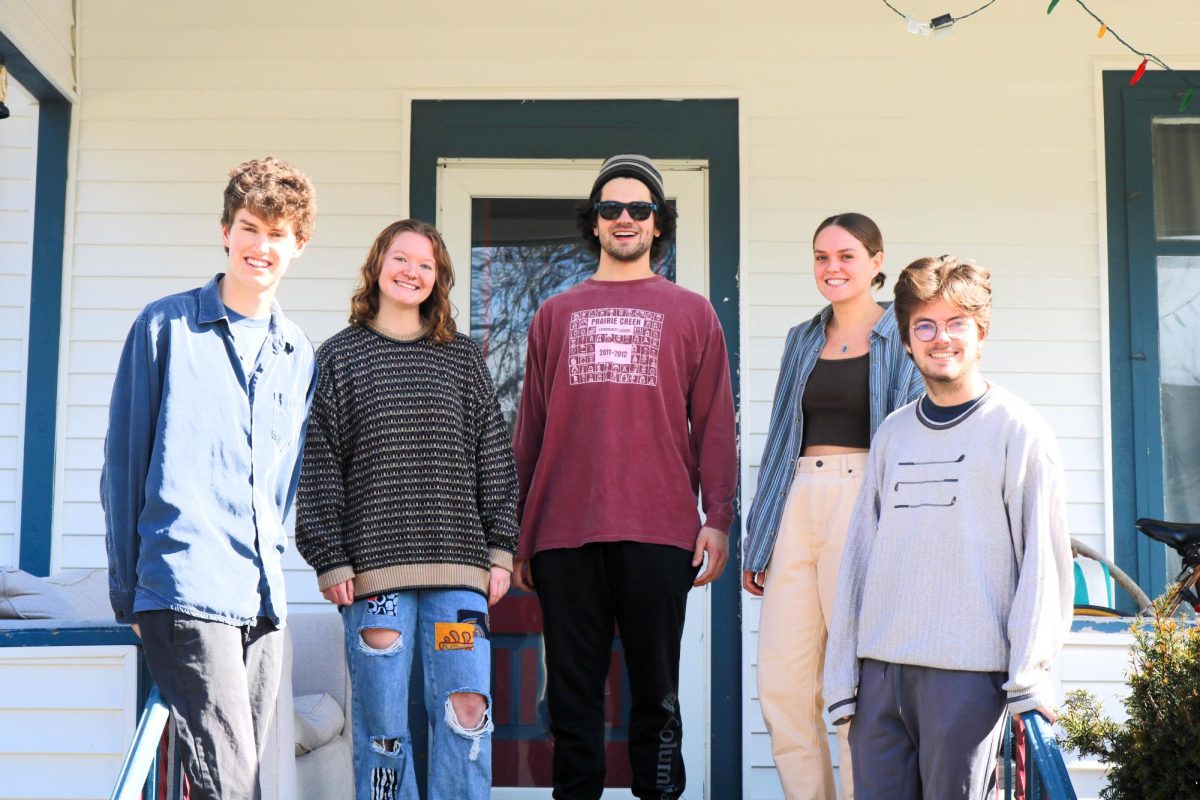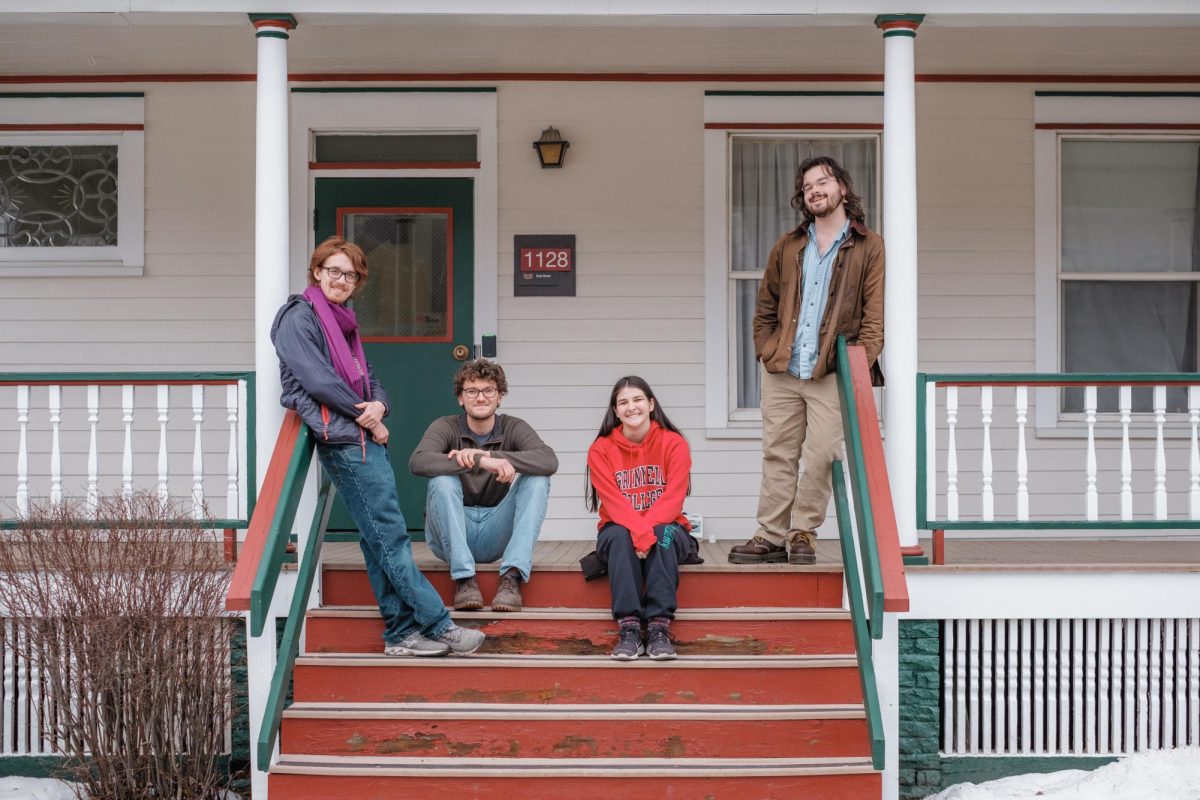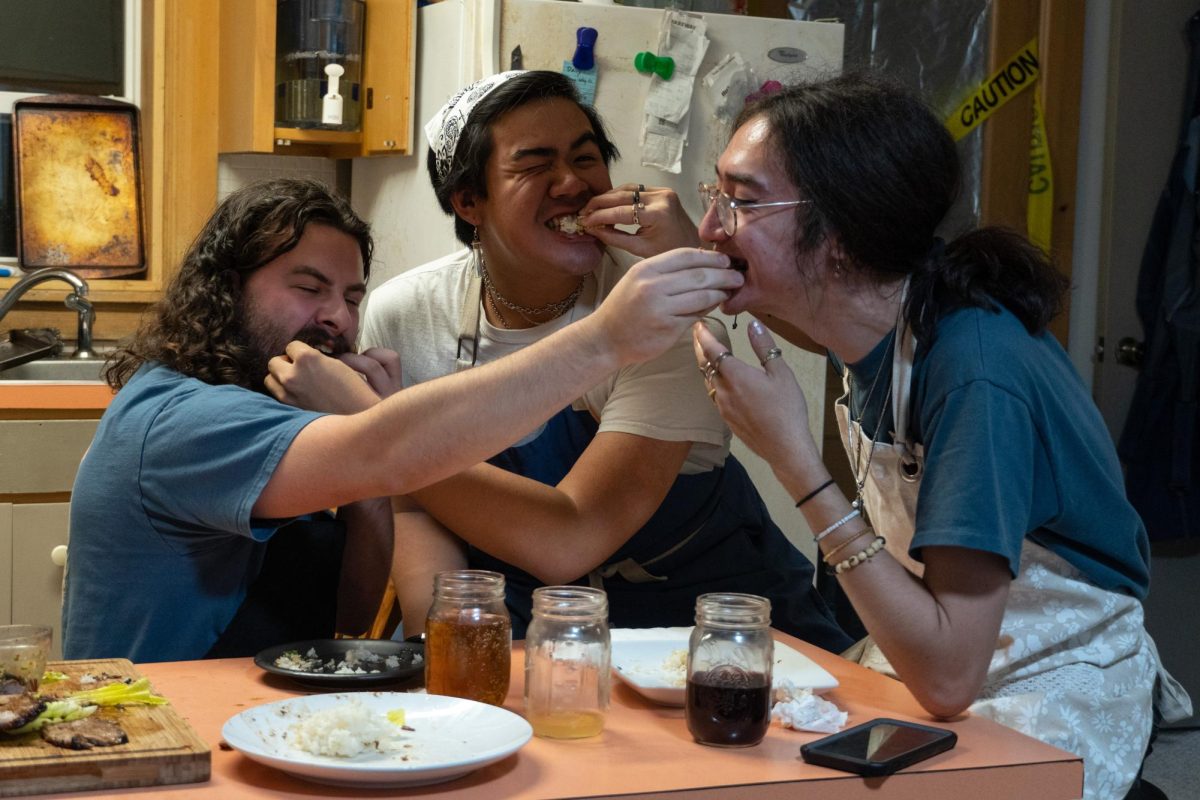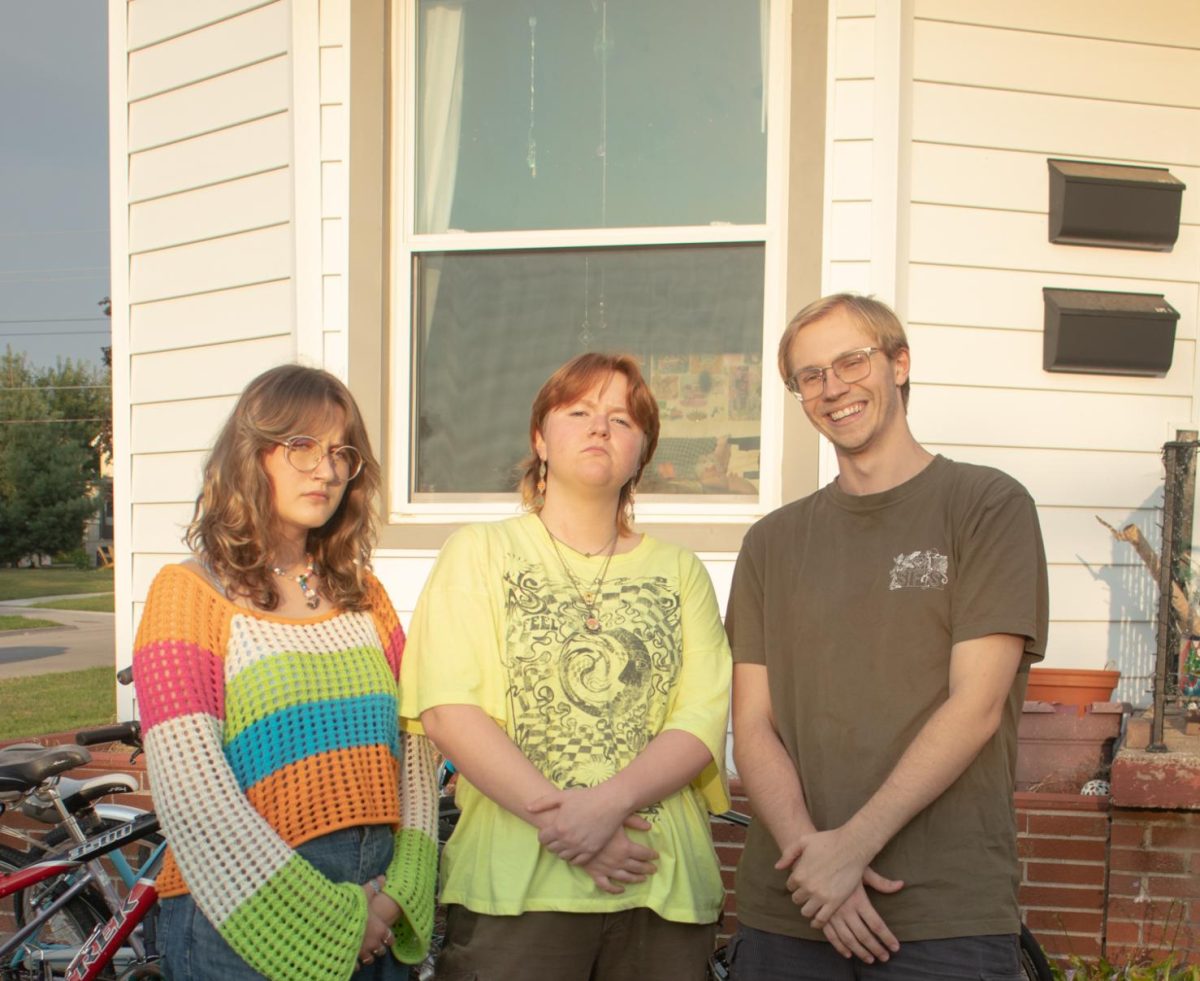Megan Tcheng,
tchengme@grinnell.edu
Nestled next to the Center for Religion, Spirituality and Social Justice and positioned directly across the street from the ARH, 1227 Park Street is home to the nine residents of Chinese House — and their resident feline friend, Possum the cat. Gracia Lee, Amy Zhou (both ’16), Yaoyang Chen, Jisheng Zhang, Ying Zhang (all ’17), Hannah Hwang, Kat Scott-Nevros, Medha Gopalaswamy and Cora Wang (all ’18) lovingly call the spacious two-story language house their own — and apparently, so do many of their friends.
“We only have nine residents, but we have over 12 people in the house at any [given] time. We have friends come over for dinner, to study, and some even sleep on the couch,” said Chen, who pointed towards a large, navy sofa in the center of their living room.
“People sleep on the couch a lot,” Zhou agreed, a sentiment that was quickly met by a chorus of approving chatter from the rest of the house members.
Despite the couch’s popularity, the most active area of the Chinese House is likely the house’s fully equipped kitchen, which most of the house members use to brush up on their cooking chops. With specialties ranging from chocolate chip mochi bread to an impressive repertoire of authentic Japanese, Chinese and Korean dishes, the residents of Chinese House take their culinary endeavors seriously.
Food, likewise, possesses an important role in the development of the house community. All nine members of Chinese House admit to having bonded over their mutual love for food.
“We cook a lot and eat together a lot,” Hwang said.
“And everyone is always willing to share,” added Zhou. “Every time you walk in, if someone is eating, you just go for it.”
Chinese House’s culinary endeavors, however, expand beyond the residents and close friends. As one of Grinnell’s five school-sponsored language houses, Chinese House hosts community events throughout the academic year — and, of course, their events involve food and drink.
“We started doing a Chinese and Japanese bubble tea time at the house. It happens every first and third Friday of the month. Basically language learners and house members can come together and drink bubble tea. We want to give students more opportunities to meet other international students and speak the language,” Lee said.
The house members’ most beloved nightly tradition, Midnight Kitchen, reflects their shared admiration for any and all things culinary. As the residents explained, this late-night affair arose less out of necessity and more out of a desire for communal procrastination.
“Midnight Kitchen happens when can’t finish our homework during the night, so we get really hungry,” Ying Zhang explained.
“Then we use food to procrastinate more … And then we go to bed even later … And then we sleep on the couch,” Zhou finished with a smile, nodding pointedly at the house’s most notorious couch-sleeping suspect.
“There’s always someone awake in the house at any given time,” Scott-Nevros noted.
With so many people constantly rotating in and out of the house, Chinese House seems to be perpetually alive with activity. The nine house members, however, despite their disparate personal schedules, always find overlapping time during the day to interact.
The members of the house even know each other’s morning schedules, even if they would rather be left blissfully unaware. In particular, the issue of an unruly alarm clock prompted a flurry of spirited responses.
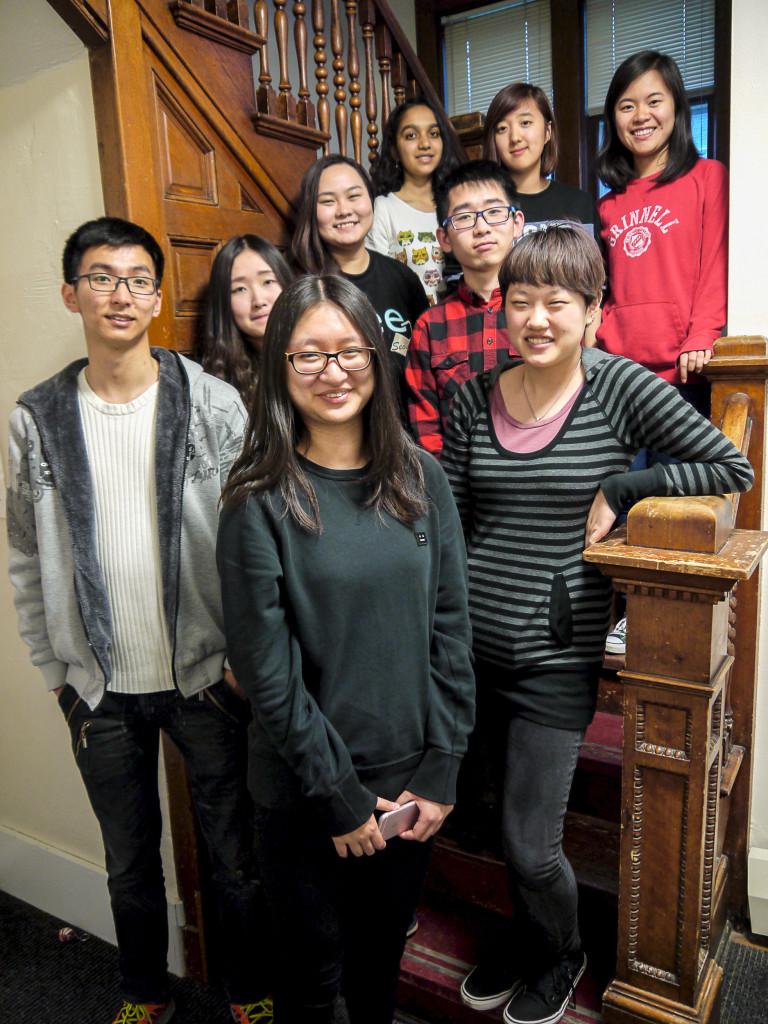
Photo by Leina’ala Voss.
“Should we talk about the alarm?” Chen jokingly proposed, when asked how the house members get along.
“[Chen] will leave his alarm on for hours. You can hear it throughout the house,” Lee said.
“One time he woke me up at like 5:30 in the morning,” Jisheng Zhang said. “We’ve kind of adapted by now, though. We just don’t care anymore,” he concluded, reflecting the house members’ dominant attitude towards each other’s quirks.
In this way, despite the trials and tribulations of Chen’s alarm and their changing personal schedules, the nine residents of Chinese House manage to live together as a cohesive group. Spread throughout the house’s six bedrooms, the residents fill the building with their loving energy.
When the residents of Chinese House aren’t boiling up massive amounts of boba, pearls in bubble tea, or entertaining their steady stream of guests, they like to enjoy the company of the house’s newly appointed mascot (or should we say, “mascat”): Possum.
Possum, an adopted housecat from PALS, Grinnell’s local animal shelter, initially joined Chinese House as a temporary resident. Now, however, she resides in the house as an assimilated member of the residential community. Despite her bed-hogging tendencies and her penchant for covert, late-night escapes, Possum provides the house with some much-needed feline attention.
All in all, the residents of Chinese House have nothing but respect and affection for one another — and their feline friend.
“We really kind of love each other,” Ying Zhang said.





























































